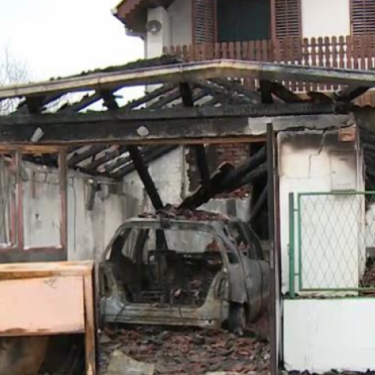Press freedom should be high on EU-Balkans summit agenda, says RSF

Reporters Without Borders (RSF) calls for support for investigative journalism to be a leading topic at the summit that the EU’s Slovenian presidency is organising with the Western Balkans, where journalists who investigate major stories such as corruption and the Covid-19 pandemic are threatened by a lack of judicial independence and must compete with disinformation.
Although respect for press freedom is a condition for accession to the European Union, it is not on the programme of the summit between EU member states and the six Western Balkans countries – Albania, Bosnia, Kosovo, Montenegro, North Macedonia and Serbia – being held on 6 October in Slovenia.
However, none of these countries has made any significant progress as regards freedom of the media. In fact, all of them saw their scores worsen in RSF’s 2021 World Press Freedom Index except Bosnia, which registered a very small improvement.
“Press freedom should not be a taboo subject at the EU-Balkans summit,” said Pavol Szalai, the head of RSF’s EU/Balkans desk. “Support for investigative and professional journalism in the Balkans is an essential remedy to help the region combat two of its leading problems – corruption and the Covid-19 pandemic. The EU should undoubtedly be more ambitious in its use of the seduction it exerts over the Western Balkans in order to enable the region’s citizens to have access to more reliable news and information.”
Crimes of violence against journalists enjoy a disturbing level of impunity in the Western Balkans. In Serbia, the judicial system has yet to convict those responsible for investigative journalist Slavko Curuvija’s murder in 1999, or the Molotov cocktail attack on another investigative journalist, Milan Jovanovic, in 2018.
Authorities have also failed to punish those responsible for last year’s bomb explosion outside reporter Elidon Ndreka’s home in Albania or the brutal attack on journalist Visar Duriqi outside his home in Kosovo in February 2021. The inefficacy of judicial systems, due above all to their lack of independence, has also been evident in Montenegro, where the prize-winning journalist Jovo Martinovic has been subjected to arbitrary proceedings since 2015.
Professional journalists who investigate public interest subjects such as Covid-19 and migration are also often obstructed by the authorities. Ana Lalic, a Serbian reporter, Tatjana Lazarevic, who works for the Kosovar media outlet KoSSev, and Bosnian freelancer Nidzara Ahmetasevic were all arbitrarily arrested or harassed by police while covering these subjects in the course of the past year.
Disinformation is meanwhile flourishing in the Balkans and fake news – which even mainstream media outlets now peddle – is posing a major problem for society as a whole in connection with the pandemic. Many tabloids are relaying Covid-19 conspiracy theories while TV Happy, a channel broadcasting in several of the region’s countries, is promoting dubious vaccination theories.
The high level of coronavirus disinformation in the Balkans is matched by a relatively low vaccine take-up, although it is hard to prove a direct link between the two. The vaccination rate ranges from 23% to 45% in the six Balkan countries while the EU average exceeds 70%.
Because of their criticism of the government, independent media outlets that carry reliable news and information are often the victims of discrimination by means of opaque and unfair allocation of state advertising. They are also the targets of draconian bills drafted with the declared aim of combating fake news, as in Albania.
Once the candidate countries become member states of the EU, the Union struggles to defend press freedom within its borders. Slovenian prime minister Janez Jansa often attacks journalists while his government, the organiser of this EU-Balkans summit, has arbitrarily suspended funding for the national news agency STA, recently forcing its director to resign.
Bulgaria is the EU/Balkans region’s worst ranked country in RSF's World Press Freedom Index, having fallen 61 places since joining the EU in 2007. Hungary has fallen 64 places and Poland has fallen 32 places since 2004.
Bosnia is ranked 58th in the 2021 World Press Freedom Index, while Kosovo is 78th, Albania is 83rd, North Macedonia is 90th, Serbia is 93rd and Montenegro is 104th.



